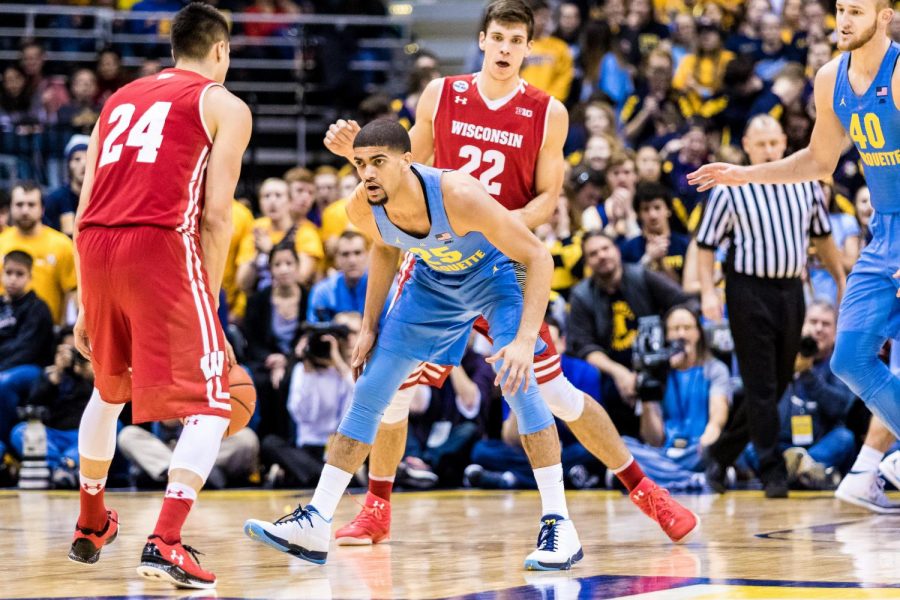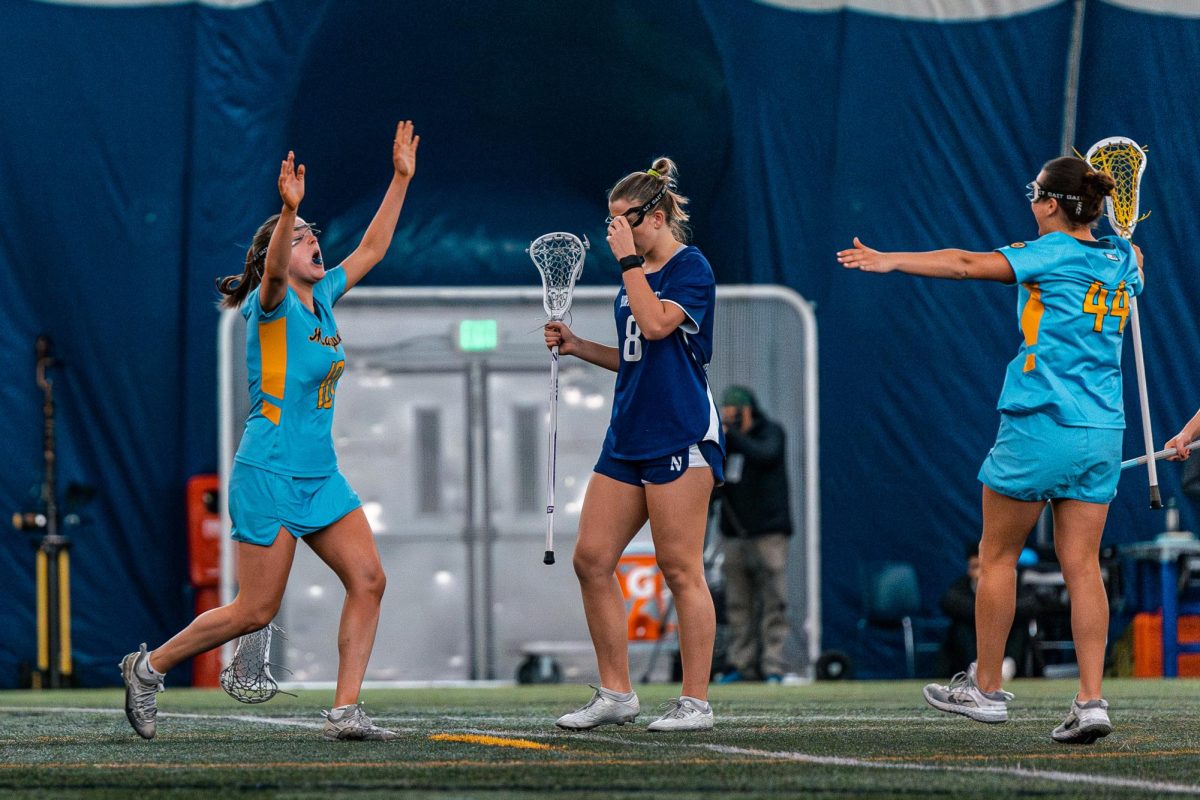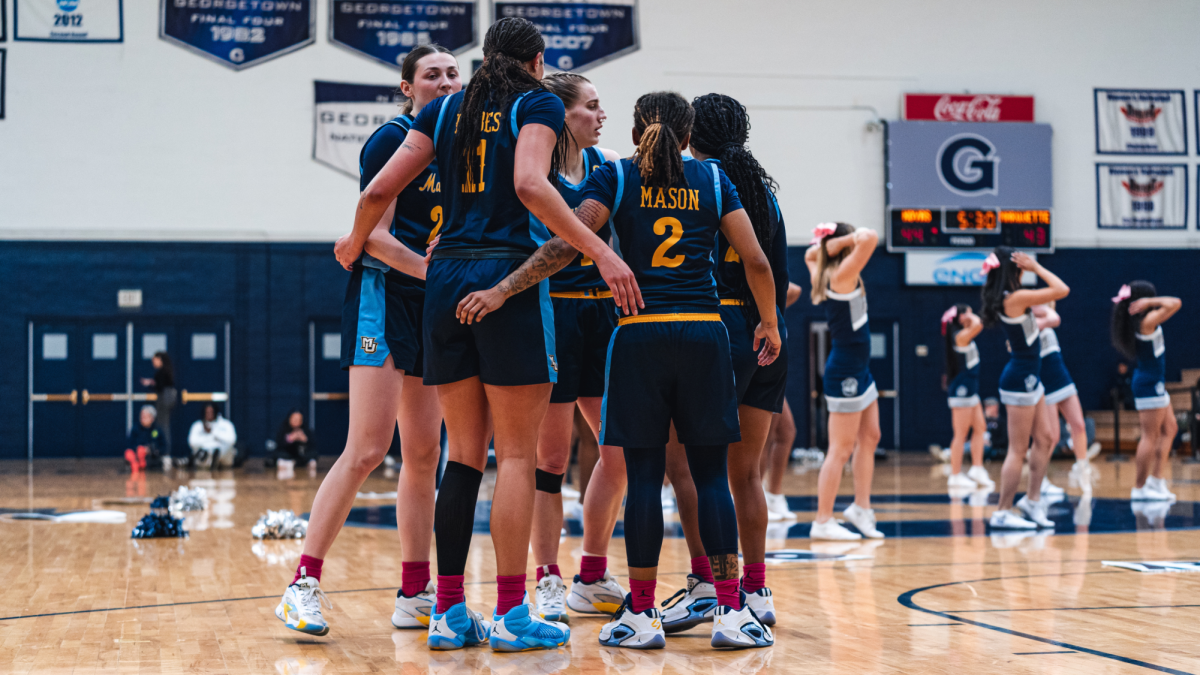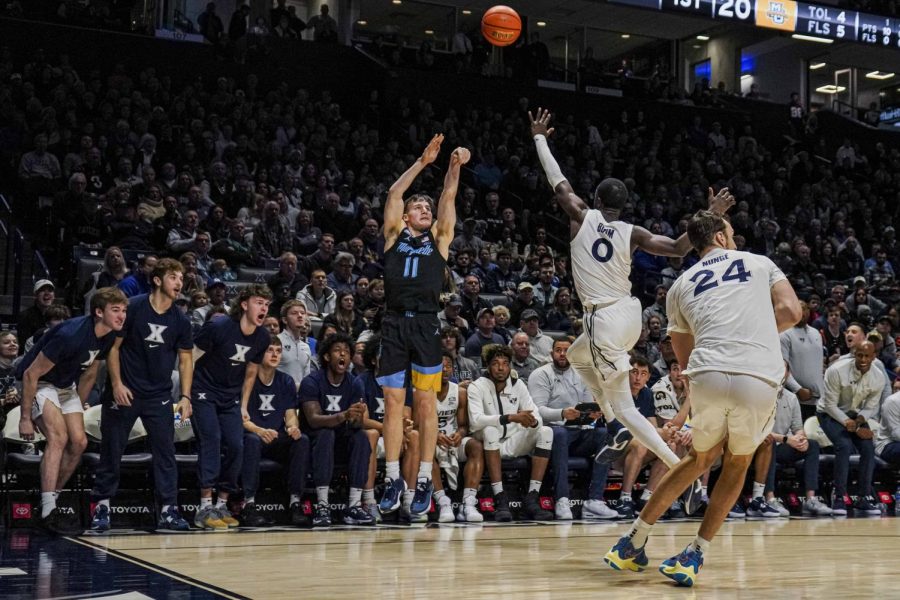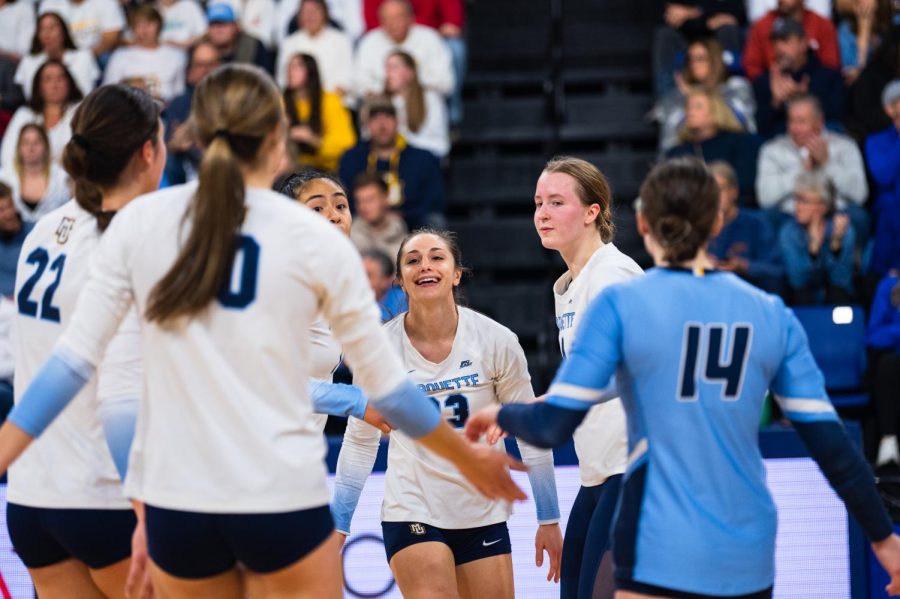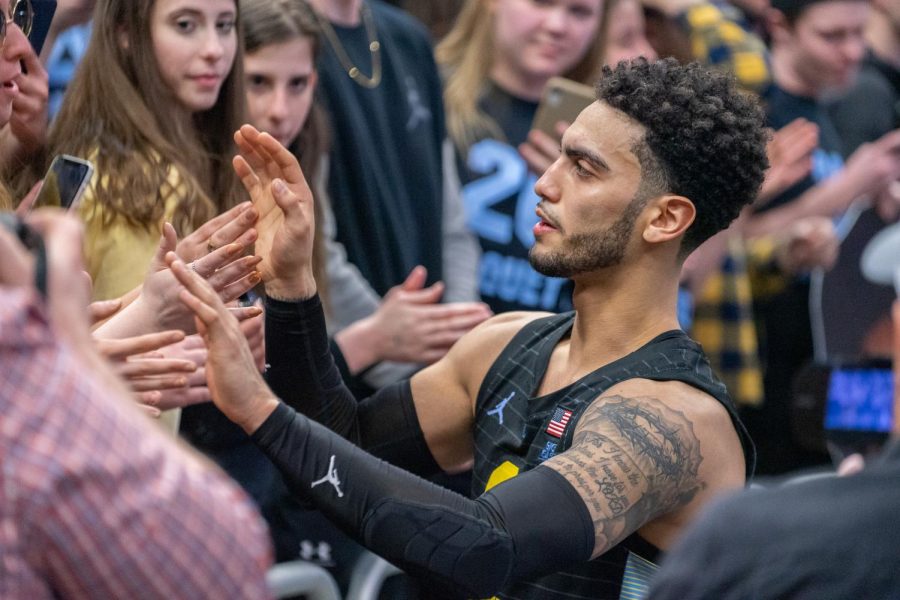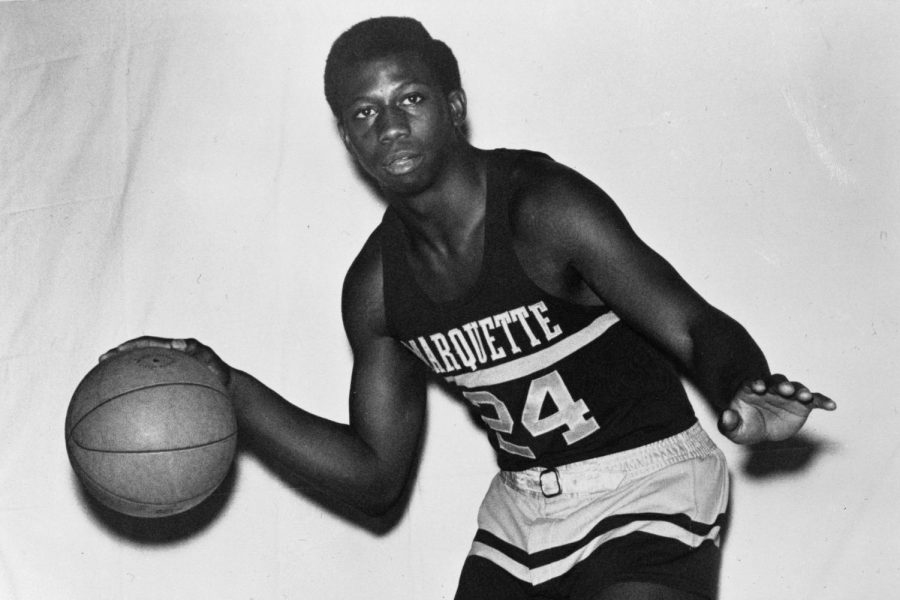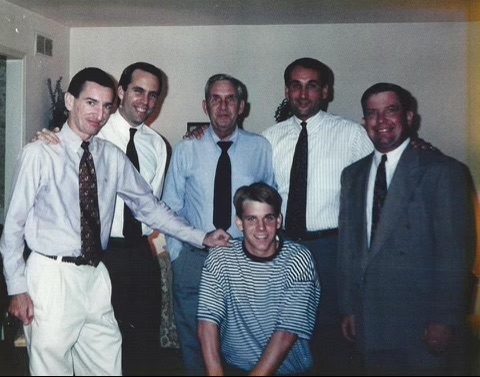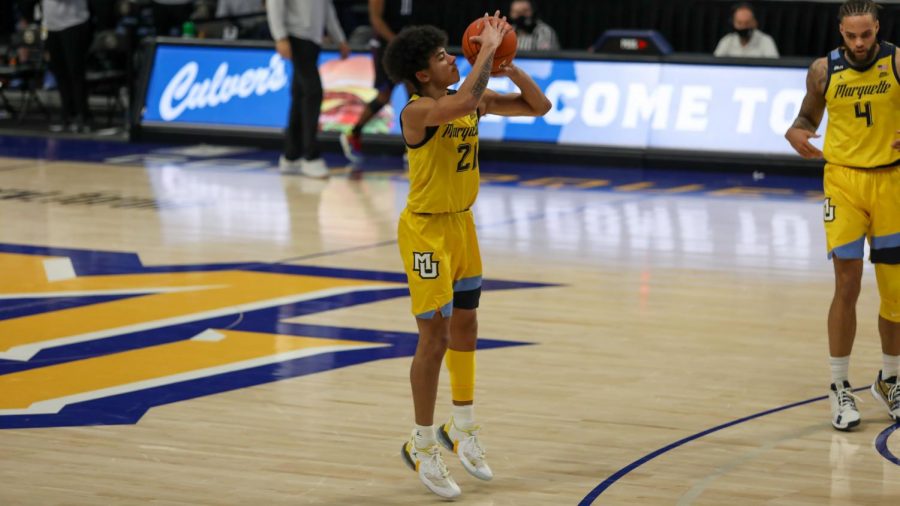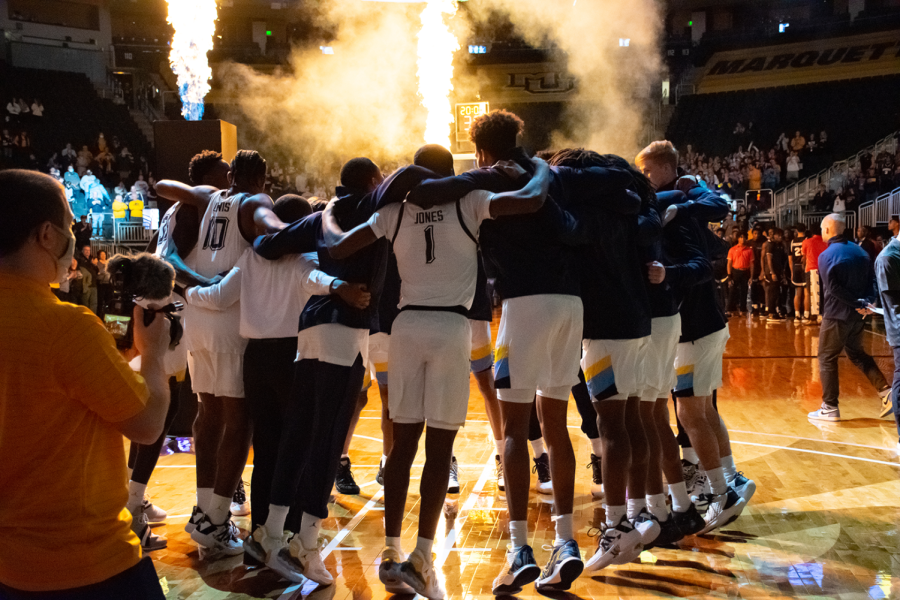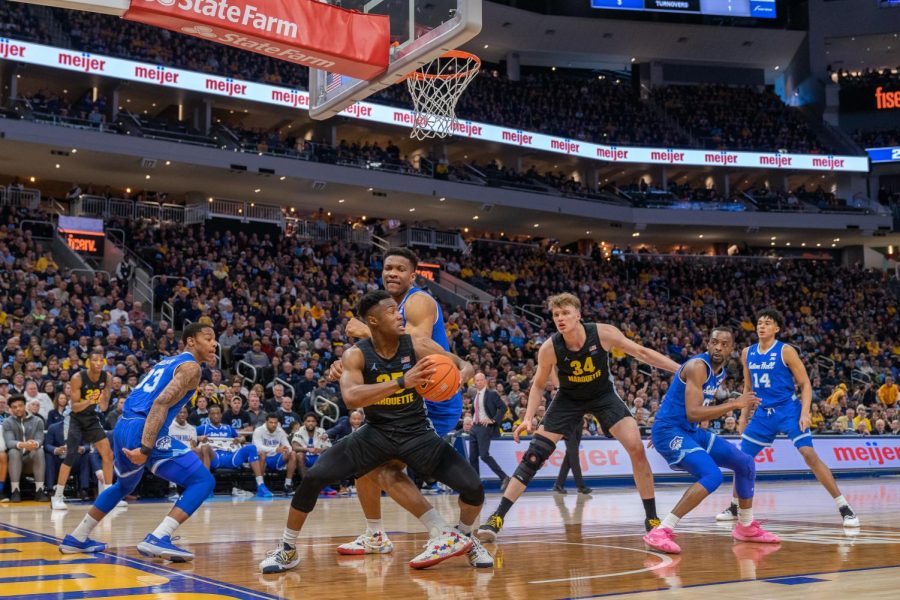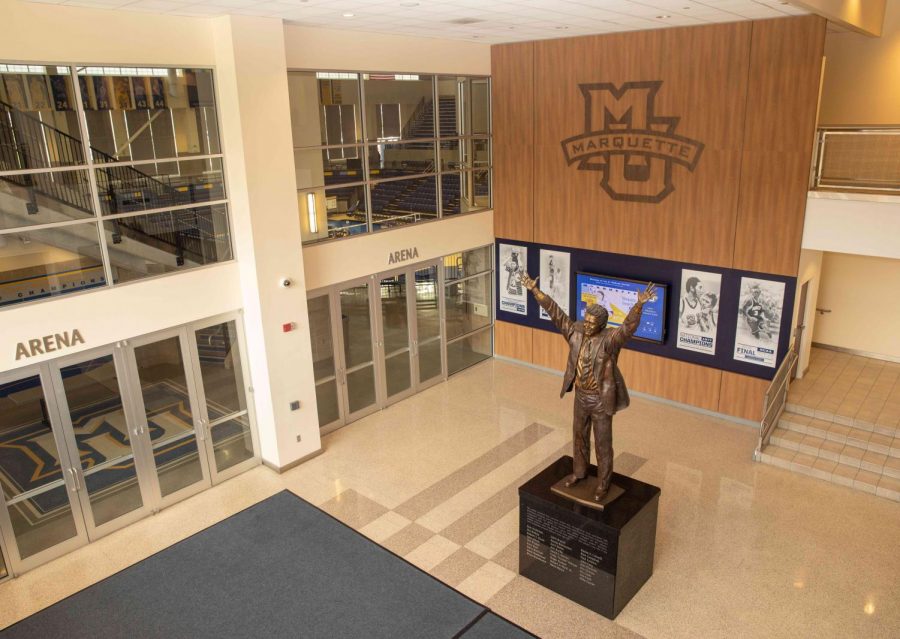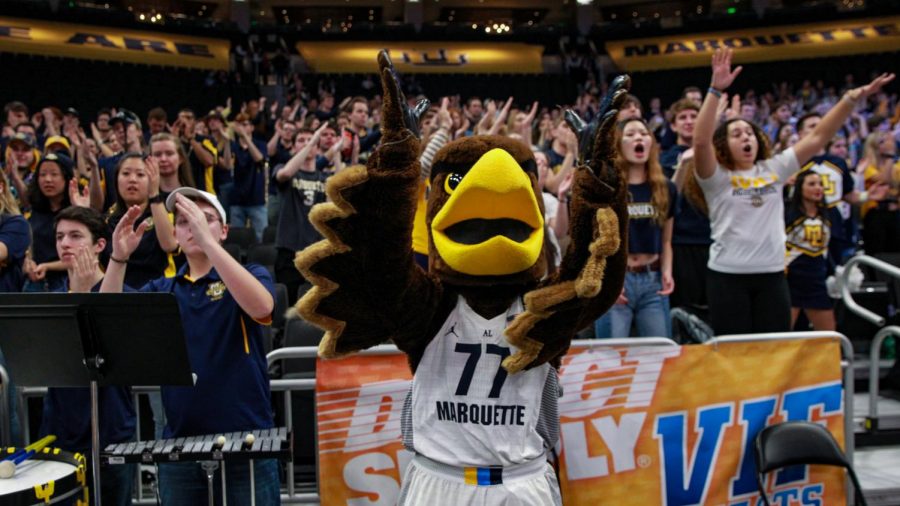The BIG EAST’s most potent offensive team from last season didn’t do a single offensive drill in the first week of practice this year.
Twenty hours, the maximum allowable practice time per week, came and went without Marquette’s vaunted three-point shooters touching a basketball. Some of the best players in the program’s recent history – Markus Howard, Sam Hauser and Andrew Rowsey, for instance – spent those hours re-learning basic on-ball guarding footwork.
“It was necessary,” Hauser said. “Not touching a ball during a practice is a little bit weird but I think it was needed just to learn the basics.”
In head coach Steve Wojciechowski’s world, defense is the top item on the agenda, no matter what the stats from last season might indicate.
“It’s not like we didn’t emphasize it last year,” Wojo said. “We just never got to the point where we were consistently very good at it. This team has the capability of being better defensively.”
Last year’s Golden Eagles didn’t set the bar high, allowing 75.6 points per game, which ranked ninth in the BIG EAST. KenPom, a prominent college basketball analytics site, also deemed Marquette’s defense the second-worst in the conference.
If Marquette’s man-to-man defense was merely bad, its pick-and-roll defense was abysmal. Per Synergy Sports, the Golden Eagles ranked in the bottom five of the entire country in pick and roll defense, and the game film did not dispute that figure. Screeners had open lanes to the basket. Ball-handlers broke through double-teams. Open shot after open shot swished through nets from Providence, Rhode Island to Omaha, Nebraska.
“A lot of people look at the point of the screen as a key thing,” Wojo said. “But anybody who has studied the game significantly would tell you that a good ball screen defensive team involves five guys.”
Junior power forward Matt Heldt used “showing” as an example of this principle. Heldt explained that when involved in a ball screen, he has to briefly switch from guarding a big man to a guarding the dribbler, which would leave his former assignment free unless a teammate picks him up.
“As the big, you show, and you have to stay there so the guard can’t drive,” Heldt said. “Then your man rolls and you’re still showing, so you have to rely on the other three guys to hold the post player so you can get back in time and he doesn’t get a layup.”
Learning how to defend the pick-and-roll at the college level is a tricky task for inexperienced teams. High school offenses employ ball screens, but they often develop much slower and come with far less action off the ball. This was even a problem for sophomore Markus Howard, who had U17 men’s national team experience before playing at Marquette.
“The pace is the biggest adjustment for anybody coming out of high school,” Howard said. “I learned very quickly that I was going to have to adjust to it.”
Howard’s biggest shortcoming last year defending the pick-and-roll was fighting through the actual screen, he said. As a result, everyone else on defense had to cover for him and fall a step behind.
“Initially, I have to get into the ball and allow the big to recover back and me to recover (his) man,” Howard said. “Getting into the ball is my biggest thing.”
Guarding the ball-handler can be even harder for a post player like Heldt. Quicker big men will try to set on-ball screens for guards, which forces Heldt to follow along to the arc. Once there, the offense may switch Heldt onto a speedier player who can take him to the hoop or spring Heldt’s former assignment free for an easy layup.
Having to keep two players in mind during screens is a part of the job that took some time to get used to.
“The guards are so good in this league and it’s a lot of ball screens,” Heldt said. “You’re going to have to be able to defend those if you want to play good defense, so it’s definitely a thing where you kind of have to get used to it and learn to like it.”
Failing to embrace defense more thoroughly held last year’s team back from being one of college basketball’s best. Marquette was eighth in the country in KenPom’s adjusted offense metric in 2016-’17; five of the other nine teams to rank in the national top 10 were a three-seed or better in the NCAA Tournament.
Instead of living up to that standard, Marquette squeaked into the tournament as a No. 10 seed and surrendered 93 points to South Carolina in a first round loss that served as a microcosm of the problems that had plagued the team all season.
In order for the team to have any hope of navigating a challenging BIG EAST slate and returning to the NCAA Tournament, the defense will have to significantly improve. That’s why the team has been “hitting the defensive end hard,” Hauser said.
“That was a very obvious area of weakness we had last year,” he said. “We’re going to continue working on that and we already see improvement with what we’ve been doing. We just have to keep hitting it hard.”

